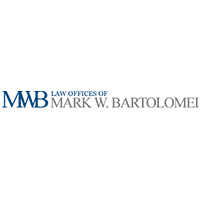Northbridge Bankruptcy & Debt Lawyer, Massachusetts
Sponsored Law Firm
-
 x
x

Click For More Info:
-
Botelho Law Group
901 Eastern Ave Suite 2 Fall River, MA 02723» view mapBankruptcy & Debt Law Fall River Lawyers
At the Botelho Law Group we have several attorneys, with different specializations; to help your case’s individual needs.
800-229-5331
Marina R. Matuzek
✓ VERIFIEDBankruptcy & Debt, Divorce & Family Law, Criminal
Marina R. Matuzek is a practicing lawyer in the state of MA handling Bankruptcy and Family Law cases.
Mark W. Bartolomei
✓ VERIFIEDDivorce & Family Law, Real Estate, Criminal, Bankruptcy & Debt, Mediation
As the founder of the Law Offices of Mark W. Bartolomei, Mr. Bartolomei is a highly skilled and dedicated attorney focused on providing outstanding le... (more)
FREE CONSULTATION
CONTACTFREE CONSULTATION
CONTACTJennifer Lynn Conrad
Other, Lawsuit & Dispute, Business, Bankruptcy & Debt
Status: In Good Standing Licensed: 25 Years
Paul W. Carey
Real Estate, Public Finance, Business, Bankruptcy & Debt
Status: In Good Standing Licensed: 30 Years
Brian Aldo Consigli
Landlord-Tenant, Child Custody, DUI-DWI, Bankruptcy
Status: In Good Standing Licensed: 21 Years
Jacqueline D. Cameron Chappell
Mediation, Civil Rights, Bad Faith Insurance, Bankruptcy
Status: In Good Standing
Teresa Agresta-Persico
Real Estate, Estate, Credit & Debt, Bankruptcy & Debt
Status: In Good Standing
Joseph H. Baldiga
Litigation, Trusts, Workout, Bankruptcy & Debt
Status: In Good Standing Licensed: 37 Years
 Joseph Botelho Fall River, MA
Joseph Botelho Fall River, MA


